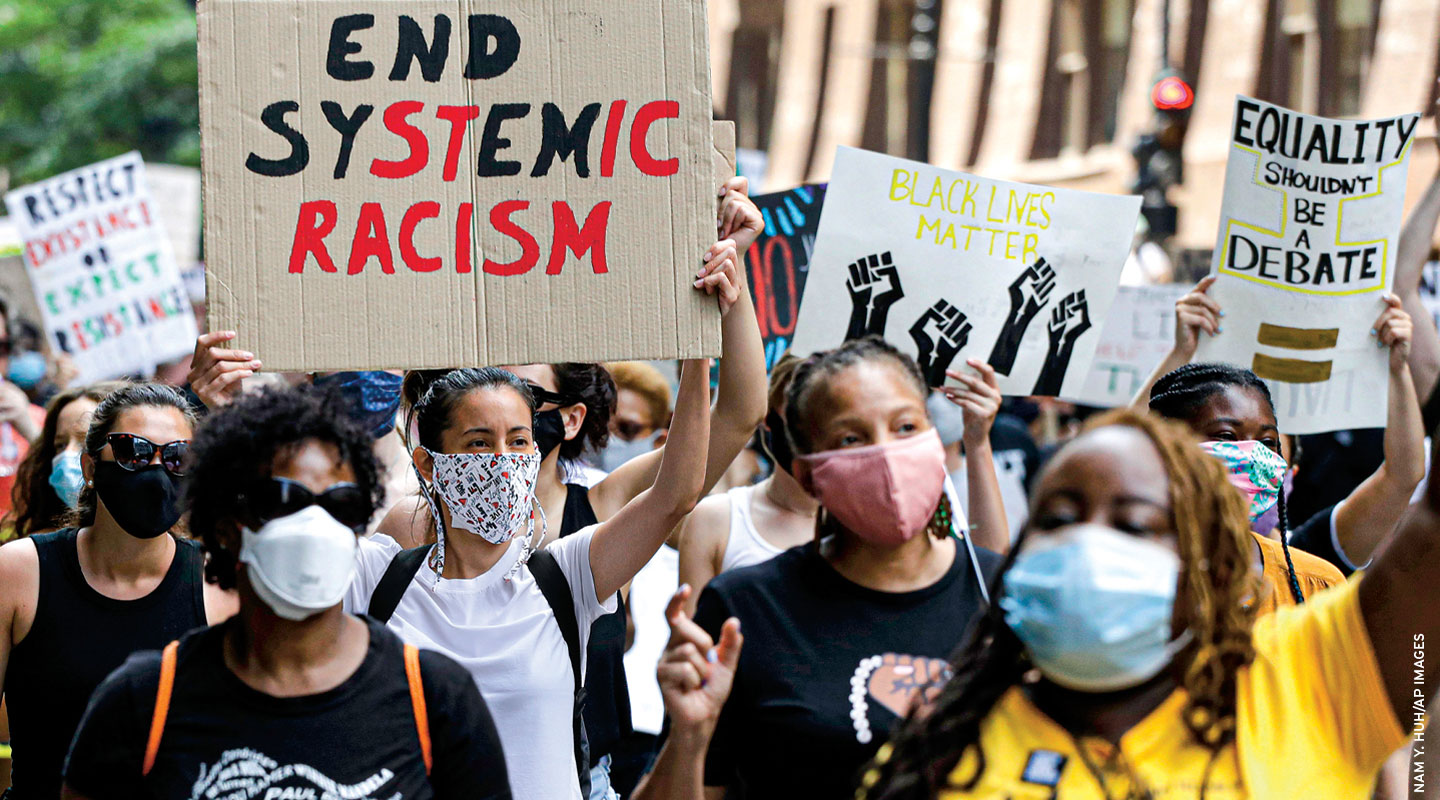This year, Upfront is publishing a series of articles highlighting racism in the U.S. and efforts to combat it.
Recent events have shone a spotlight on racial inequality in American society. The protests following the police killings of George Floyd, Breonna Taylor, and other Black Americans, have highlighted the racial discrimination that persists in policing and the criminal justice system. And the Covid-19 pandemic has called attention to enormous racial disparities in wealth and access to quality health care.
Together, these historic events have sparked national discussions about the ways in which many Black and white Americans continue to live in two different—and very unequal—worlds.
“Every one of our systems in America has been impacted—infected, in fact—in some significant way by these racial disparities and these racial inequalities,” says Yohuru Williams, a civil rights scholar at the University of St. Thomas in St. Paul, Minnesota.
Many experts point out that these inequalities are rooted in systemic racism. Systemic racism refers to laws, customs, and practices built into society over time that have disadvantaged people of color. Even though many of these laws have changed, their effects can still be felt.
Here’s a look at five ways that racial inequality persists in American life—and how Black Americans have persevered in the face of this inequality for centuries.
Recent events have shone a spotlight on racial inequality in American society. A wave of protests have followed the police killings of George Floyd, Breonna Taylor, and other Black Americans. These demonstrations have highlighted the racial discrimination that continues to take place in policing and the criminal justice system. And the Covid-19 pandemic has called attention to huge racial gaps in wealth and access to quality health care.
Together, these historic events have sparked national discussions. They've helped draw attention to the ways in which many Black and white Americans continue to live in two different—and very unequal—worlds.
“Every one of our systems in America has been impacted—infected, in fact—in some significant way by these racial disparities and these racial inequalities,” says Yohuru Williams, a civil rights scholar at the University of St. Thomas in St. Paul, Minnesota.
Many experts point out that these inequalities are rooted in systemic racism. Systemic racism refers to laws, customs, and practices built into society over time that have disadvantaged people of color. Even though many of these laws have changed, their effects can still be felt. Here’s a look at five ways that racial inequality persists in American life and how Black Americans have persevered in the face of this inequality for centuries.

